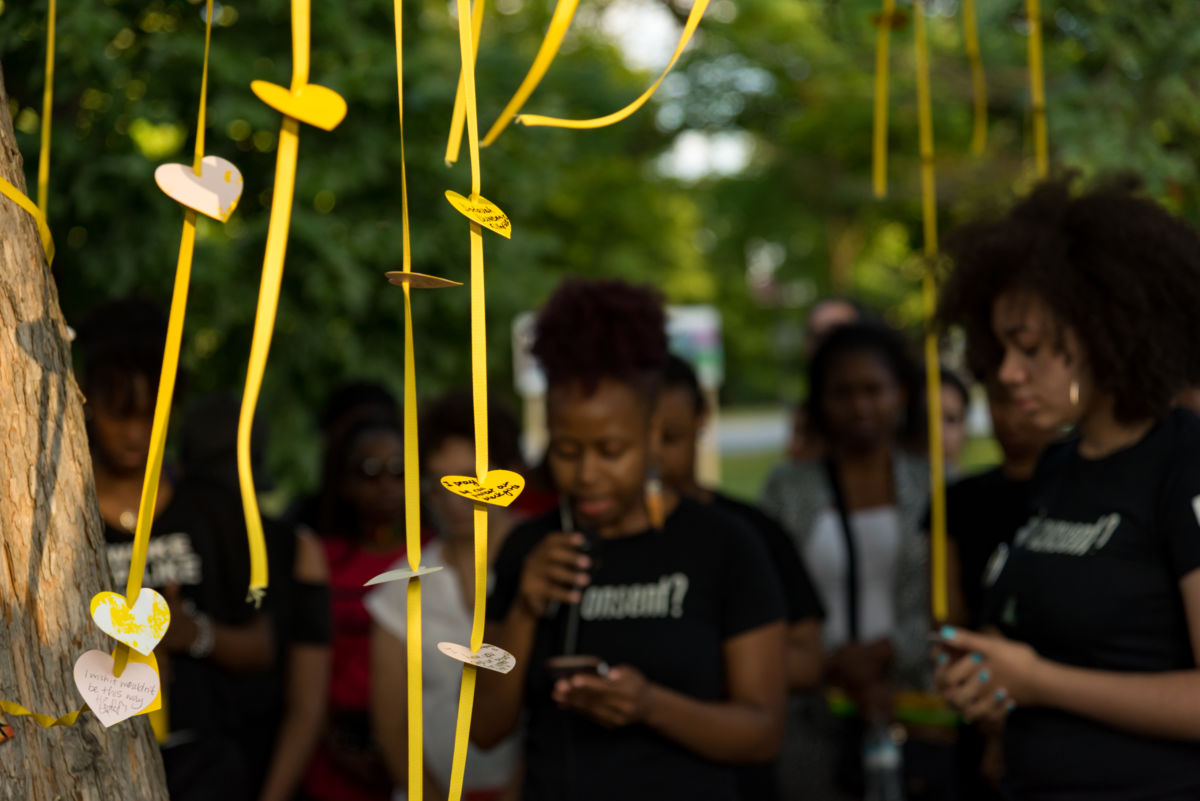This is a time to let love guide each step, but it doesn’t seem like that. It seems like time to obsess over how bad it all is. It’s really bad. It’s a hard time for those who have to think in terms of short-term conditions — of surviving deportation, prison, attacks on our personhood.
Watching a caravan of displaced people approach our border, as families are violently separated and children are traumatized there; watching as members of our community are killed by police; watching as the language of trans identity is threatened out of existence… it can feel hard to see what we can do that will matter.
It’s also a devastating time for those who can lift their eyes to the horizon and see our long-term conditions: the changing climate, the weakness of infrastructure, the desperation of old systems like patriarchy and white supremacy as we shed them. It’s a balmy December so far in this golden age of global warming — it feels lovely if we don’t question how quickly our climate is changing in spite of the climate change deniers in positions of power over our policies. Our global reputation is appalling as we simultaneously disrespect the UN and cozy up to the leaders who order the assassination of journalists, including but not at all limited to Jamal Khashoggi.
What will guide our steps in these conditions if we aren’t proactive? Fear, of course. I think of it as justified terror. We aren’t scared of the unknown as much as the informed prediction of climate apocalypse and genocide. We aren’t scared of the possibility of race war but are feeling justified terror given the patterns of white supremacy to violently assert and defend itself.
Rage — the feeling that what is happening is so unfair and so wrong and so flagrant and so unforgivable — can guide our steps, but if it does, we can then focus only on revenge. We may call it victory, but what we want is the power to punish those who have harmed us for so long. The rage is righteous. But it ties us to the source of rage and imprisons us in trying to get some sense of right through the wrong.
Obsession can also guide our steps, a hyper vigilance around watching the crisis. We assert our own powerlessness when we give attention to those who seek to harm and oppress us but don’t put our energy into new actions. Being upset without letting the emotion change our behaviors is a pointless use of our incredible, complex system of emotions and changes.
That terror, that obsession, that rage — they all pull us away from our values. They pull us away from abundance, from possibility, from pleasure and joy, from freedom.
Love brings us back. Love brings us into the present moment. Love helps us to recognize the gift of being alive, alert, having agency, generosity.
Love is the continuing work to bail out Black mothers and fathers so that families can be reunited. Love is the way leaders from the Movement for Black Lives reached out to other movements to say our struggles are intertwined, and it is time to grow together and claim our place as The Majority. Love is the strategic work of the #MeToo movement, calling for us not get caught in the call-out phase of public shaming those who harm us, but to focus on growing our capacity to actually heal together. Love is the way community came together around several people in our movement community as we battled cancer — giving time and love, but also generating funds to cover exorbitant medical fees and to close the gap between the time our society gives us to be sick, heal and grieve, and the time we actually need. Love reaches over and under the border wall, extending care and compassion and family to those brutalized by the regressive half of our citizenry.
When we feel fear, terror, rage or obsession, it is a measure of how much we care about our lives, our families, our planet. We don’t wait for the feelings to subside, but use that energy as a generative force. What needs to change in the face of fear? What will liberate us and our loved ones from the rage? What love will allow our vigilant parts to rest?
Love shows us what to move toward to both free and protect what we so deeply care about. And love teaches us who will be by our sides when the terror comes, and when the terrifying possibility that made us so afraid actually comes to pass and it is time to grieve, to honor and let go, to change, to step into a different future.
Join us in defending the truth before it’s too late
The future of independent journalism is uncertain, and the consequences of losing it are too grave to ignore. We have hours left to raise the $12,0000 still needed to ensure Truthout remains safe, strong, and free. Every dollar raised goes directly toward the costs of producing news you can trust.
Please give what you can — because by supporting us with a tax-deductible donation, you’re not just preserving a source of news, you’re helping to safeguard what’s left of our democracy.
